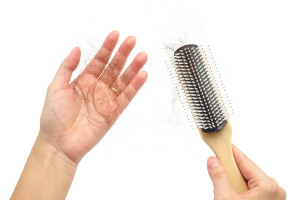 It’s 3 a.m. You haven’t slept more than three consecutive hours in weeks. You have a pile of laundry that’s long overdue for washing, your spouse is out of town, and now your baby has a fever.
It’s 3 a.m. You haven’t slept more than three consecutive hours in weeks. You have a pile of laundry that’s long overdue for washing, your spouse is out of town, and now your baby has a fever.
Sometimes, as a parent, it feels like every point of stress converges on you at once, but that doesn’t mean you have to navigate your parental challenges alone. It’s okay to ask for help. In fact, the women who are most successful at balancing family, work, and self, will tell you that the key to their success is a loving and accommodating support network of friends and family—not some unrelenting drive to do it all on their own. If you feel like you’re standing with your baby on the edge of a meltdown with no help in sight, then it’s time to ask for help. Here’s how to say the words out loud.
- Leverage Your Full Support Network. Resist the assumption that only your parents or best friend will be willing to help. Anyone who has ever had a baby—and even your single friends—will all understand that for the baby’s first few months, you’re on 24/7/365 baby nurturing and caregiving. Ask your family, your spouse’s family, your friends, and even neighbors to help. By leveraging an expanded network, you can avoid feeling like you are a burden to any single family member or friend.
- Be Specific in Your Requests. When asking someone for help, be specific about what you need. The people who care about you will want to make life easier for you, but they may not know how. Without specifying where you need extra hands, you may end up with more help than you need in one area (think, too many extra prepared meals to enjoy), or days when visits from friends and family turn into social calls only. Ask your sister to come over and help you with the laundry, or ask your best friend to help with your grocery shopping. By being specific in your requests, you can ensure your essential chores are being completed while you bond with your baby.
- Share Responsibilities with Your Partner. While your partner can’t help with breastfeeding, he or she can help with changing diapers, swaddling, bathing, and rocking, in addition to household chores. Whether your partner is home on paternity leave, or it’s outside of work hours, communicate and collaborate to share as much of the baby caregiving responsibilities as you can. If you need your partner to step up and help out more any time, don’t feel like you can’t ask.
- Say Yes When Someone Offers to Help. One mistake that too many new mothers make is not accepting help when someone offers out of a feeling that they have to be as capable and self-sufficient as they always have been before being a mom. When a friend or family member says, “Let me know if there is anything I can do to help,” use that as an opportunity to ask for what you need. It’s much easier for those who struggle with asking for help to say yes to an offer rather than asking out of the blue.
The first few months of your baby’s life are critical for his or her healthy development, and vital for your healing and bonding time. Don’t let the stress of dusting, mopping, mowing the lawn, and other household chores divert your focus from where it needs to be. By allowing those who care for you to help you, you’ll be a better, more attentive mom, and your loved ones will enjoy knowing that they were there for you when you needed help—just like all the times you’ve been there for them.
More
 Creating a safe and comfortable sleeping environment for your baby is important for so many reasons. As a new mom, you want a happy well-rested baby, but you also want time to get rest yourself. Additionally, it’s imperative to make sure the sleeping space is safe and guidelines are being followed.
Creating a safe and comfortable sleeping environment for your baby is important for so many reasons. As a new mom, you want a happy well-rested baby, but you also want time to get rest yourself. Additionally, it’s imperative to make sure the sleeping space is safe and guidelines are being followed.
Back is Best
The Center for Disease Control and Prevention (CDC) insists that babies should be placed on their back to sleep at all times (both naps and at night). The baby’s sleep area should be kept in the same room as the parents for at least six month, although 12 months is preferable. Opt for a wearable blanket rather than a normal blanket, but keep an eye on your baby’s temperature by watching for signs that he/she is getting too hot. Heat signs include sweating and hot body areas to the touch. Additionally, be sure a blanket does not cover your baby’s head.
Crib Safety
Several factors contribute to making sure the environment is safe. First, the crib should be safety approved and should contain a flat mattress covered by a fitted sheet. The area around the baby should be completely empty. Soft bedding, blankets, pillows, bumper pads and toys should not be in the baby’s sleeping area.
Create a Bedtime Routine
Once the safe sleep area is ready, the real challenge begins. While some babies will easily sleep through the night, others will not. Many newborns sleep 10-18 hours per day, but the problem is that they don’t know when it’s day or night. Creating a routine is one way to begin to get the baby to realize when it’s bedtime. The idea is to create a set of steps that are followed each and every night.
When planning a bedtime routine, consider what activities make your baby excited and what activities are more calming. Keep more active undertakings for daylight hours and reserve quite games for the evening. Nightly baths are calming and will help your baby wind down. Reading, rocking and music are also wonderful ways to calm baby. This way, your baby has something to look forward to before bed, which may make him or her associated bedtime with this activity that brings them job. In addition, aim to make nighttime conditions consistent, so if your baby wakes up through the night, the same light and sounds are on.
Sources:
https://www.cdc.gov/sids/Parents-Caregivers.htm
https://www.webmd.com/parenting/baby/nighttime#1
More
 The first few months with a newborn can be stressful for any parent. Between sleep deprivation, frequent feedings, and changings, the entire process may seem exhausting. Many moms will take on the bulk of the duties, which can lead to even more stress. Because new moms may not be sure what to prioritize and what to ask for help with, this list offers ways to take some things off your plate and help your partner become more involved.
The first few months with a newborn can be stressful for any parent. Between sleep deprivation, frequent feedings, and changings, the entire process may seem exhausting. Many moms will take on the bulk of the duties, which can lead to even more stress. Because new moms may not be sure what to prioritize and what to ask for help with, this list offers ways to take some things off your plate and help your partner become more involved.
- Teach, don’t preach. If your partner is a first-time parent, he or she may need some time to become comfortable with a baby. Babies are so small, sometimes new parents are a bit apprehensive about holding, changing or feeding them. Let your partner warm up and discover how to be comfortable with the newborn. Once this familiarity begins to develop, the rest of the care-giving will fall into place.
- Encourage bonding time. Encourage your partner to spend alone time with the baby, which not only gives you a rest, but also lets the baby get used to their other caregiver. This can include rocking the baby in a chair, singing him/her a lullaby, or even wearing the baby in a sling around the house or on errands.
- Realize that it’s ok if your partner doesn’t do things exactly the way you’d do them. Get your partner involved with the basic caregiving tasks of changing, dressing, and bathing. Let your partner go at it alone, even if this means they make mistakes. They need to find their own rhythm, which may differ from yours. Try not to hover or criticize.
- Ask for a break! Many new moms try to do everything themselves. Ask for breaks from feeding with expressed milk or formula. While it may take planning to get milk stored in advance, it can be a tremendously helpful break for the mother. Take a nap, go for a walk or go to the store alone.
- Keep an open line of communication. A new baby in the house is a big change for everyone. Keeping an open line of communication and caring for one another lovingly is key to decreasing stress levels in the household.
As a new mom, it can be easy to want to take the lead and dictate how tasks should be completed. However, it’s important to let your partner be involved and do things their own way. There are many styles and ways to care for a baby, as long as the baby is being safely looked after, let your partner put their own spin on it. They may make mistakes, but do your best to refrain from criticism. Instead of focusing on what you perceive as negative, work to value the help and relief as a positive aspect.
Chouchani, Sayegh and Robinson MD is an OB-GYN practice located in Western New York. We are now accepting new patients! Contact us today to make an appointment.
More
 Parents have been electing to have circumcisions performed on their newborn baby boys for centuries. It is a procedure that represents an important religious and cultural tradition for Jewish and Islamic families, as well as certain aboriginal tribes in Africa and Australia. Today, it’s estimated that approximately 55 to 65 percent of all newborn boys are circumcised in the United States for a wide variety of reasons that span religious beliefs, cultural and social reasons, and hygiene concerns. If you are expecting a baby boy, and are wondering if you should have him circumcised, review the information below to help put your mind at ease about the benefits and safety of this time-old tradition.
Parents have been electing to have circumcisions performed on their newborn baby boys for centuries. It is a procedure that represents an important religious and cultural tradition for Jewish and Islamic families, as well as certain aboriginal tribes in Africa and Australia. Today, it’s estimated that approximately 55 to 65 percent of all newborn boys are circumcised in the United States for a wide variety of reasons that span religious beliefs, cultural and social reasons, and hygiene concerns. If you are expecting a baby boy, and are wondering if you should have him circumcised, review the information below to help put your mind at ease about the benefits and safety of this time-old tradition.
Overview
In a circumcision procedure, a doctor will surgically remove the skin covering the tip of an infant male’s penis. The procedure is typically performed in a hospital a day or so after birth and takes approximately ten minutes. During a circumcision, the doctor will position your baby on his back with arms and legs restrained. An anesthetic will be applied or injected to the area before the doctor removes the foreskin. After the procedure, a topical antibiotic will be applied, and the penis will be lightly wrapped in gauze. Healing takes about ten days. During this time, the penis will likely be sore and may look red, swollen, or bruised.
Benefits of Circumcision
In some cases, circumcision is medically recommended or necessary, as in cases where the foreskin develops too tightly to be retracted over the glans. For parents who worry that voluntary circumcision procedures put their newborn through unnecessary discomfort and may expose him to unnecessary risks, know that that there are certain benefits to the procedure, including:
- Easier hygiene – Throughout their lives, uncircumcised males must make more concerted efforts to regularly wash beneath the foreskin of their penis to ensure proper hygiene.
- Reduced risk of urinary tract infections – Uncircumcised males are at a higher risk of urinary tract infections (UTI). Severe infections, particularly at a younger age, can lead to kidney problems later in life.
- Decreased risk of sexually transmitted infections – Studies reveal that men who are circumcised may be at a lower risk of certain sexually transmitted infections, including HIV.
- Reduced risk of penile cancer – Though rare in general, penile cancer is more common in uncircumcised men. Women whose partners are circumcised also face a reduced risk of cervical cancer.
- Prevention of penile complications – In some cases, uncircumcised men experience phimosis, a condition in which the foreskin can be difficult or impossible to retract, which can lead to inflammation of the foreskin or head of the penis.
The American Academy of Pediatrics (AAP) advises that the benefits of circumcision outweigh the risks; however it does not recommend universal circumcision for all male newborns. Instead, the AAP recommends that parents make an informed decision about circumcising their son and ensure the procedure is performed safely with the use of anesthetics.
If you have questions about whether or not to circumcise your newborn, talk to your OBGYN. He or she will help you better understand the benefits and risks and help you make the decision that is best for your baby boy.
More
 For working moms, maternity leave hardly seems like enough time, given that with the birth of your first child, your entire world has been turned upside down.
For working moms, maternity leave hardly seems like enough time, given that with the birth of your first child, your entire world has been turned upside down.
As a new mom, you may be struggling with the decision to go back to work or to stay at home.
While not all moms have the luxury of making this choice (as some financial situations require moms to go back soon after) many moms are faced with the choice of when they should return to work after having a baby. Be assured, this is not an easy question for any new mom. Assuming you can make the decision, here a rundown of each side.
To Work?
The pros to going back to work include:
- Increased income
- Solidifying your position in career
- Performing engaging work that interests you
- Helping a segment of the population
- Interacting and socializing with adults
- Feeling accomplished when you meet your goals
Cons include:
- The cost of daycare
- Mommy guilt – having to emotionally cope with time away from your baby
- If breastfeeding, the inconvenience of having to pump at work
- Feeling spread thin, due to having to get everything done at work and at home
Not to Work?
The pros to staying home include:
- More time with your baby
- Not having to rely upon daycare or nannies
- More time to take care of the house
- Freedom to make your own schedule
- No pressure to meet deadlines or get to work on time
Cons include:
- Boredom
- Isolation
- A pause in your career path
Finding a Balance
Adjusting to the new addition of the family will take careful configuration. One in five moms will return to part-time work, while upward of 30% of moms choose to return full time. The ideal situation isn’t the same for everyone and finding what balance is comfortable for you, could take some trial and error.
If you stay home, consider other ways to keep active. Be proactive about making new mom friends through local classes and events in your hometown such as mommy and me yoga or music. Take some time to work on interests for yourself, perhaps you’ve always wanted a veggie garden or to learn how to swim. Use the time at home to engage in activities that also make you happy. Lastly, get involved in your community through volunteer work. Many local organizations need help and many will accept little ones at volunteer events. Focus on your own expertise (editing/writing, graphic design, photography, etc.) and offer it up to local groups.
If you go back to work, see if you can afford to start part time, considering how it will affect your career. You don’t want to lose your career trajectory because you eased back into work. Once back, find a groove that works for you, meaning a schedule and arrangement for child care that you are comfortable with. However, even with your limited free time, it’s great to find other mom friends to help ease the pressure and stress. You may even want to discuss a flexible schedule with your employer. Many companies are offering flexible work arrangements in order to keep their best and brightest employees on board.
More
 With a new baby at home, worrying about losing baby weight should not be a concern at the top of your list. However, you may be wondering when you might feel (and look) like yourself again.
With a new baby at home, worrying about losing baby weight should not be a concern at the top of your list. However, you may be wondering when you might feel (and look) like yourself again.
According to the American Pregnancy Association, on average, a woman should gain 25 to 35 pounds during pregnancy. When considering your time frame for losing the baby weight, keep in mind that it took you nine months to grow an entire human being! In general, losing the baby weight could take anywhere from 10 weeks to a year, depending upon your pre-pregnancy weight. And women who were overweight before pregnancy may encounter a longer time frame to returning to their pre-pregnancy weight.
Set Realistic Goals
Weight loss should be slow and steady. Women that lose 1-2 pounds per week typically are more successful at keeping the weight off. Considering most moms lose 7 to 8 pounds after the baby is delivered, plan a realistic goal to lose the rest. For example, if you decide to shed 20 pounds, set up a 10-week plan to lose 2 pounds per week.
While it’s crucial to lose baby weight, ideally within 6 to 12 months to prevent further issues with obesity, new moms must mindful of what their body can handle. Returning to pre-pregnancy vigorous workouts too soon could be harmful to your body. Instead, opt for a gradual increase of exercise activity, giving your body the proper time to heal.
To reach your goal weight, consider the following tactics:
- Exercise: Instead of heading back the gym or fitness classes right away, start with brisk stroller walks. In addition to the benefits of fresh air and sunlight, brisk walks will get your blood pumping. Aim for at least 150 minutes per week (about 20-25 minutes per day). When possible, add in short yoga or stretching videos/apps to help your muscles adapt to the new routine. Try to include 10 to 15 minutes of stretching per day, switching up targeted muscle groups throughout the week.
- Eat healthy foods: Rather than crash dieting, which can increase stress, consider eating more whole foods (eggs, veggies, fruits, meat, whole grains, etc.). While new babies will leave you with little time to cook and prepare healthy meals, it’s imperative to pass on ready-made and processed foods. As opposed to snacking on convenience foods, set aside time to meal prep while the baby is sleeping or with a loved one. Cut up fruits, roast meat/veggies, and pre-cook eggs for fast snacks on the go. Stocking your fridge and pantry with healthy meals with make the choice easier.
- Hydrate: Drink plenty of water to prevent dehydration, keep your metabolism moving, and help your stomach to feel full. A good rule of thumb is to aim for 64 ounces (8 glasses of 8 ounces each) of water per day.
- Sleep: Yes, sleep. While a full nights rest may seem difficult during the first few months, follow the old rule to sleep when the baby sleeps. Try to reach a combination of naps and night sleep to achieve seven hours. Once your baby is sleeping through the night, it will be much easier to achieve a good night’s rest.
Overall, enjoy your newborn and move around when you can. Your body and baby will thank you!
More
 After giving birth, your body will experience some changes, including soreness and pain. While most changes are minor inconveniences, a few things could leave you questioning your body’s health. It’s important to remember: each person is different and not all bodies will experience the same issues. Monitor your own body and address unusual changes. Drinking plenty of water, eating fruits, veggies and whole grains, and getting enough sleep can help combat many issues. Remember to take care of your own body by giving yourself time to recover and heal.
After giving birth, your body will experience some changes, including soreness and pain. While most changes are minor inconveniences, a few things could leave you questioning your body’s health. It’s important to remember: each person is different and not all bodies will experience the same issues. Monitor your own body and address unusual changes. Drinking plenty of water, eating fruits, veggies and whole grains, and getting enough sleep can help combat many issues. Remember to take care of your own body by giving yourself time to recover and heal.
The following list explains some of the most common postpartum body changes:
- Perineum Soreness: Expect to encounter some soreness in the area between your vagina and rectum. This area can stretch or even tear during pregnancy, causing irritation. To manage perineum soreness: apply a cold pack to the area, sit on a pillow, soak in a bath or, if the pain is more severe, ask your doctor for medicine to ease the pain.
- Vaginal Discharge: After giving birth, you may experience an increase of vaginal discharge or fluid from your vagina. Typically a mix of blood and tissue from the uterus, vaginal discharge is usually heavier and brighter red immediately following pregnancy. However, over the course of a few weeks, it typically will become lighter in color and flow. To manage discharge, use panty liners or sanitary pads, while experiencing symptoms. Avoid tampons.
- Breast Soreness: Your body will prepare for breastfeeding and you will likely experience breast engorgement (large, heavy breasts that are tender to the touch). In addition to breast engorgement, many new moms will also experience sore and cracked nipples. To manage breast engorgement, breastfeed the baby as much as possible. To manage nipple soreness, ask your physician for recommendations on creams and at-home treatment.
- Afterbirth Pain: As your uterus returns to its regular size, you may experience pain known as uterus contractions. Pain typically only lasts a few days after you give birth. To manage soreness, ask your doctor for an over-the-counter pain relief recommendation.
- Bladder Incontinence: Due to the pressure on your pelvic muscles during pregnancy, your bladder may be temporarily weakened. Incontinence symptoms may include feeling pain or a burning sensation when urinating, feeling of a full bladder but not being able to urinate, or feeling a frequent/sudden urge to urinate. To manage incontinence, use sanitary pads, drink lots of water, and practice Kegels.
- Excessive Sweat: Many new moms will sweat more after giving birth, especially at night. It’s caused by hormones working to get rid of access fluids used to support the pregnancy. Postpartum sweating typically subsides in a couple weeks, possibly even in a few days. To mange sweating, wear loose/light pajamas, cover your sheets with a towel, and sleep in a cool room. Additionally, drinking plenty of water will help prevent your body from becoming dehydrated.
- Hair Loss: During pregnancy, your hair may be fuller and thicker, but after giving birth, many new moms will see thinner hair or hair loss. Typically lasting three to four months, hair loss should subside eventually. To manage hair loss, eat plenty of fruits and vegetables and stay hydrated.
- Hemorrhoids: During and after pregnancy, many woman will experience painful swollen veins around the anus. To manage hemorrhoids, drink plenty of water and soak in warm baths to relieve symptoms.
If any of the above symptoms seem extreme, call your doctor. He or she can discuss what is normal or what may need more attention.
More
 The culmination of pregnancy sneaks up on new parents. The first few weeks are filled with eating, sleeping and many diaper changes! Schedules may be difficult to establish until your baby is a few months old. However, routines can be created in the first few weeks. Routine can help mommy and baby adjust to their new life and create healthy sleep patterns. Here are a few things to expect during those first few weeks of life.
The culmination of pregnancy sneaks up on new parents. The first few weeks are filled with eating, sleeping and many diaper changes! Schedules may be difficult to establish until your baby is a few months old. However, routines can be created in the first few weeks. Routine can help mommy and baby adjust to their new life and create healthy sleep patterns. Here are a few things to expect during those first few weeks of life.
Feeding
Feeding represents, perhaps, the most important time for newborns. It’s normal for newborns to spend to two to five hours per day eating. Newborns typically eat six to eight times per day. Breast-feeding allows for the important development of mother and baby bonding. Bottle-feeding can also provide ample bonding time for the other parent.
Sleeping
Sleeping will inevitably be a challenge with a newborn. The good news? The worst part only lasts for three months, on average. By month four, most babies can sleep at least 5-6 hours at a time. For the first three months, consider scheduling sleep with your partner; determine times where one parent is on duty and the other can sleep. Additionally, aim to match your sleep habits with the baby. Sleep/nap when the baby sleeps. Don’t feel like you need to be the host, if family comes over, take that time to catch up on some rest, while they watch your new baby.
Bathing
Bathing newborns can also pose a trial. For the first week or two, until the umbilical cord stump falls off, sponge baths are recommended. Newborns only need to be bathed three times per week, as many will struggle with sensitive and dry-skin issues. Expect baths to become more frequent, as the baby gets older. Try to set bath time in the schedule around the same time each day to eventually lead to more consistency with sleep patterns. A bath at nighttime will help the child relax and anticipate bed time.
Play
Remember to make time for playing too. Playing is an important time that helps your newborn developmentally. Activities can include taking walks, reading stories, talking, or singing a song to your new baby.
Make time to cherish these first few weeks. And if you’re ever feeling depressed, sad or lonely, reach out for help. The doctors at Chouchani, Sayegh and Robinson are also here to help you through the adjustment of becoming a new mommy.
More
 How to Keep Your Newborn Safe and Avoid the Risk of Sudden Infant Death
How to Keep Your Newborn Safe and Avoid the Risk of Sudden Infant Death
It is a nightmare that no parent should have to face. In the early days of your newborn’s life, when every breath is precious, and every decision is made with the utmost care for their safety and well-being, the idea that a child could lose her or her life in sleep is a devastation that is impossible to understand. In reality, according to the Centers for Disease Control and Prevention (CDC), in 2015, there were approximately 1,600 deaths due to Sudden Infant Death Syndrome (SIDS). 1,200 of the deaths were due to unknown causes, while about 900 were due to accidental suffocation and strangulation in bed.
Every parent wants to keep his baby safe—day and night. By remaining informed about the risks and potential causes of SIDS, you can help to minimize the risk to your child.
How to Minimize the Risk of SIDS in Your Home
Put your baby on his back during sleep and nap times. This long-held recommendation is still believed to be vital, as it increases his access to fresh air and reduces the chances of him overheating in the night, a known SIDS risk factor.
- Place baby in a bare crib with a firm mattress. Do not place bumper pads or other positioning devices, pillows, blankets, covers, or stuffed animals in the crib with your baby. Any items that can affect the baby’s re-breathing (breathing back in the air that was just breathed out) can affect your baby’s arousal, or his ability to wake up if in distress.
- Stay awake while feeding at night. Late night feeding sessions can be exhausting, but never fall asleep while breast or bottle feeding your baby. Make sure to put him back to bed safely when done to ensure he does not suffocate or choke.
- Offer baby a pacifier. If you are breastfeeding, once your baby can breastfeed, offer a pacifier. Make sure the pacifier is not attached to the baby or the crib in any way, as this could cause a choking hazard.
- Do not allow bed sharing. Never fall asleep with your baby in your bed, on a sofa, or in a chair. If your baby rolls in a way so that his mouth and nose are covered, he may not have the strength to reposition himself to obtain adequate oxygen. Also, do not allow your baby to share a bed with other infants of children in your household. Here are other sleep safety tips for newborns.
- Put baby to bed in your room. Keep your baby’s crib in your bedroom until he is about six months old and can roll over on his own. That way, you can be immediately available if you hear any indication that your baby is in distress.
- Make sure baby’s clothes won’t make him overheat. The clothes you put on your baby at night should keep him warm but should ensure he is not at risk of overheating. The temperature of your room is also a factor to help baby be comfortable during nap and sleep times.
- Do not smoke. Smoking exposes your baby to lung-damaging cigarette toxins.
- If you are able, breastfeed. Studies show that breastfed babies are typically healthier and more well rested.
- Encourage supervised tummy-time. Babies need to learn how to use their arms and core to lift their upper bodies off the ground. Plan for frequent sessions of supervised tummy time to give your baby a chance to work on these skills, but never in a crib or on a bed—always on a flat surface.
- Make sure you have a safe environment for baby when traveling. Call ahead to ensure the hotel has a crib you can use if you are not able to bring your own.
If you have observed even one incident in which your baby appeared not to be breathing, went limp, or turned blue, or if your baby gags excessively after spitting up, talk to your doctor or call 9-1-1 at once. If you have any other concerns regarding your baby or how to minimize the chance of SIDS, do not hesitate to speak with your doctor.
More
 As your newborn begins to drift into sleep, his worries simply melt away. For moms, however, worrying about your baby never ends, even when he’s sleeping. The frightening reality is that if not properly positioned in a safe environment, your baby could experience an accidental injury while sleeping—or worse, a complication that leads to Sudden Infant Death Syndrome (SIDS). To keep your new addition safe all through the night, review the following newborn sleep safety tips.
As your newborn begins to drift into sleep, his worries simply melt away. For moms, however, worrying about your baby never ends, even when he’s sleeping. The frightening reality is that if not properly positioned in a safe environment, your baby could experience an accidental injury while sleeping—or worse, a complication that leads to Sudden Infant Death Syndrome (SIDS). To keep your new addition safe all through the night, review the following newborn sleep safety tips.
Sleep Positioning and Environment
How your baby is positioned for sleep is extremely important for his safety.
- Put your baby to sleep on his back on a flat, firm surface, like a crib or a bassinet. Your baby should sleep on his back until he’s one year old.
- Do not put your baby to sleep on a soft surface such as a waterbed, sofa, or soft mattress.
- If your baby’s crib is near a window, remove any dangling window cords, or any nearby electrical wires, as they could cause a choking hazard.
- Dress your baby in light sleep clothes, such as a blanket sleeper. Infant sleepwear should never include any drawstrings, ties, or hoods, and should not cover baby’s head.
- Keep the room at a comfortable temperature. If baby is overheating, his chest will feel hot to the touch.
- Give your baby a pacifier to help protect against SIDS. Do not hang the pacifier around your baby’s neck or attach it to clothes or toys.
Crib Safety
Make sure to use a crib or bassinet that meets current infant safety standards.
- Don’t use cribs with drop-side rails.
- Do not use portable bed rails. They may not prevent your infant from rolling out of bed, and may pose a risk of choking, or trapping.
- Don’t try to fix a crib that has broken or missing parts. Replace it with a new, reliable model.
- If using a crib mattress, cover it with a tightly fitted sheet.
- Only use the mattress designed for your baby’s crib or bassinet. A safe product should be designed so that the bed fits tightly inside the crib with no spaces, and the mattress should be firm and not dip in response to baby’s weight.
- To minimize the risk of suffocation, strangulation, or other dangerous situations, do not put toys, soft objects, loose bedding, or crib bumpers in the crib.
Do Not Bed-Share
If you have other little ones, or were blessed with multiples (such as twins or triplets), put each baby to bed in his own crib. Do not bed-share. That also means it’s important that you not put your infant in your own bed with you. Bed-sharing is the most common cause of death in babies under three months old. According to The American Academy of Pediatrics (AAP), your baby should sleep in your room and near your bed, but not in your bed for the first year of his life.
Sleep Length
Try to regulate your newborn’s sleep. Baby will need about 16 hours of sleep per day, and will likely take it in three- to four-hour sessions. Baby’s sleep habits will likely correspond to his need to eat every few hours. Proper amounts of food and sleep will help keep him less agitated and fussy.
Talk to Your Baby’s Pediatrician
If you have any questions about your baby’s sleep habits, or about infant sleep safety, speak to his doctor. He/she can answer any questions and guide you toward healthy practices so you and your baby can both sleep soundly.
More
 It’s 3 a.m. You haven’t slept more than three consecutive hours in weeks. You have a pile of laundry that’s long overdue for washing, your spouse is out of town, and now your baby has a fever.
It’s 3 a.m. You haven’t slept more than three consecutive hours in weeks. You have a pile of laundry that’s long overdue for washing, your spouse is out of town, and now your baby has a fever.

 The first few months with a newborn can be stressful for any parent. Between sleep deprivation, frequent feedings, and changings, the entire process may seem exhausting. Many moms will take on the bulk of the duties, which can lead to even more stress. Because new moms may not be sure what to prioritize and what to ask for help with, this list offers ways to take some things off your plate and help your partner become more involved.
The first few months with a newborn can be stressful for any parent. Between sleep deprivation, frequent feedings, and changings, the entire process may seem exhausting. Many moms will take on the bulk of the duties, which can lead to even more stress. Because new moms may not be sure what to prioritize and what to ask for help with, this list offers ways to take some things off your plate and help your partner become more involved. Parents have been electing to have circumcisions performed on their newborn baby boys for centuries. It is a procedure that represents an important religious and cultural tradition for Jewish and Islamic families, as well as certain aboriginal tribes in Africa and Australia. Today, it’s estimated that approximately 55 to 65 percent of all newborn boys are circumcised in the United States for a wide variety of reasons that span religious beliefs, cultural and social reasons, and hygiene concerns. If you are expecting a baby boy, and are wondering if you should have him circumcised, review the information below to help put your mind at ease about the benefits and safety of this time-old tradition.
Parents have been electing to have circumcisions performed on their newborn baby boys for centuries. It is a procedure that represents an important religious and cultural tradition for Jewish and Islamic families, as well as certain aboriginal tribes in Africa and Australia. Today, it’s estimated that approximately 55 to 65 percent of all newborn boys are circumcised in the United States for a wide variety of reasons that span religious beliefs, cultural and social reasons, and hygiene concerns. If you are expecting a baby boy, and are wondering if you should have him circumcised, review the information below to help put your mind at ease about the benefits and safety of this time-old tradition. For working moms, maternity leave hardly seems like enough time, given that with the birth of your first child, your entire world has been turned upside down.
For working moms, maternity leave hardly seems like enough time, given that with the birth of your first child, your entire world has been turned upside down. With
With  After giving birth, your body will experience some changes, including soreness and pain. While most changes are minor inconveniences, a few things could leave you questioning your body’s health. It’s important to remember: each person is different and not all bodies will experience the same issues. Monitor your own body and address unusual changes. Drinking plenty of water, eating fruits, veggies and whole grains, and getting enough sleep can help combat many issues. Remember to take care of your own body by giving yourself time to recover and heal.
After giving birth, your body will experience some changes, including soreness and pain. While most changes are minor inconveniences, a few things could leave you questioning your body’s health. It’s important to remember: each person is different and not all bodies will experience the same issues. Monitor your own body and address unusual changes. Drinking plenty of water, eating fruits, veggies and whole grains, and getting enough sleep can help combat many issues. Remember to take care of your own body by giving yourself time to recover and heal. The culmination of pregnancy sneaks up on new parents. The first few weeks are filled with eating, sleeping and many diaper changes! Schedules may be difficult to establish until your baby is a few months old. However, routines can be created in the first few weeks. Routine can help mommy and baby adjust to their new life and create healthy sleep patterns. Here are a few things to expect during those first few weeks of life.
The culmination of pregnancy sneaks up on new parents. The first few weeks are filled with eating, sleeping and many diaper changes! Schedules may be difficult to establish until your baby is a few months old. However, routines can be created in the first few weeks. Routine can help mommy and baby adjust to their new life and create healthy sleep patterns. Here are a few things to expect during those first few weeks of life. How to Keep Your Newborn Safe and Avoid the Risk of Sudden Infant Death
How to Keep Your Newborn Safe and Avoid the Risk of Sudden Infant Death